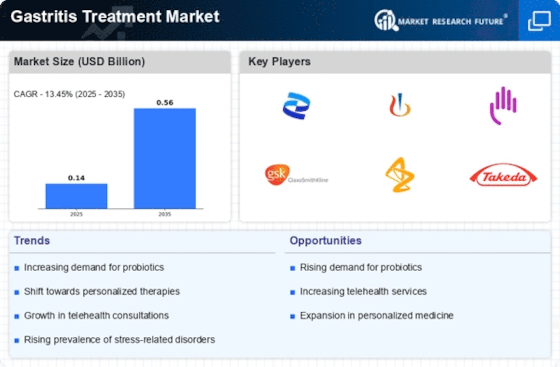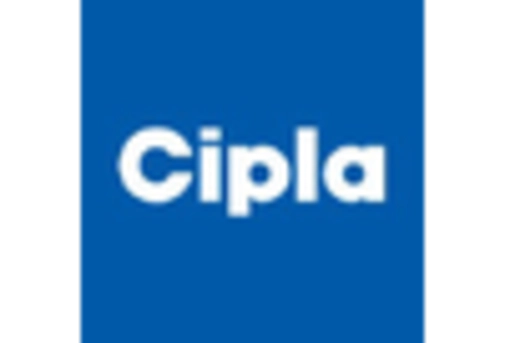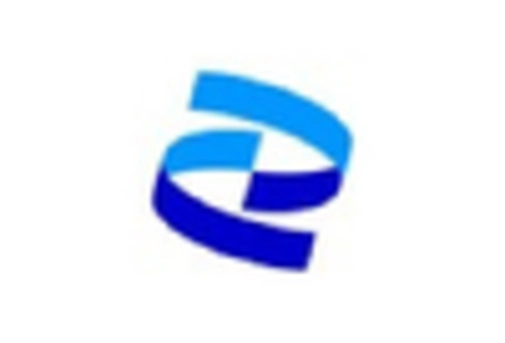-
Report
-
Prologue
-
Market Introduction
-
Definition
- Research
- Assumptions
- Limitations
-
2.2
-
Scope of the Study
-
Objective
-
3.
-
Research Methodology
-
Introduction
-
3.2
-
Primary Research
-
Secondary Research
-
Market Size Estimation
-
Market
-
Dynamics
-
Drivers
-
4.2
-
Restraints
-
Opportunities
-
Challenges
-
Macroeconomic Indicators
-
Technology Trends & Assessment
-
Market
-
Factor Analysis
-
Porter’s Five Forces Analysis
- Bargaining Power of Suppliers
- Threat of New Entrants
- Threat of Substitutes
- Intensity of Rivalry
-
5.1.2
-
Bargaining Power of Buyers
-
5.2
-
Value Chain Analysis
-
Investment Feasibility Analysis
-
Pricing Analysis
-
Global
-
Gastritis Treatment Market, by Diagnosis
-
6.1
-
Introduction
-
Blood test
-
• Market Estimates
-
& Forecast, 2020–2027
-
• Market
-
Estimates & Forecast, by Region/Country, 2020–2027
-
Endoscopy
-
• Market Estimates & Forecast,
-
• Market Estimates
-
& Forecast, by Region/Country, 2020–2027
-
X-ray of the upper digestive
-
system
-
• Market Estimates & Forecast, 2020–2027
-
• Market Estimates & Forecast, by Region/Country,
-
Others
-
• Market Estimates &
-
Forecast, 2020–2027
-
• Market
-
Estimates & Forecast, by Region/Country, 2020–2027
-
7.
-
Global Gastritis Treatment Market, by Treatment type
-
7.1
-
Introduction
-
Acid-blocking medicines
-
•
-
Market Estimates & Forecast, 2020–2027
-
•
-
Market Estimates & Forecast, by Region/Country, 2020–2027
-
Antibiotics
-
•
-
Market Estimates & Forecast, 2020–2027
-
•
-
Market Estimates & Forecast, by Region/Country, 2020–2027
-
Antacids
-
• Market Estimates & Forecast,
-
• Market Estimates
-
& Forecast, by Region/Country, 2020–2027
-
Histamine
-
Blockers
-
• Market Estimates & Forecast, 2020–2027
-
• Market Estimates & Forecast, by Region/Country,
-
Global Gastritis Treatment
-
Market, by Drug Distribution Channel
-
Introduction
-
Retail Pharmacy
-
• Market Estimates & Forecast, 2020–2027
-
• Market Estimates & Forecast, by Region/Country,
-
Online Pharmacy
-
•
-
Market Estimates & Forecast, 2020–2027
-
•
-
Market Estimates & Forecast, by Region/Country, 2020–2027
-
8.3
-
Hospital Pharmacy
-
• Market Estimates & Forecast,
-
• Market Estimates
-
& Forecast, by Region/Country, 2020–2027
-
Global
-
Gastritis Treatment Market, by End-User
-
Introduction
-
Hospital & Clinics
-
• Market
-
Estimates & Forecast, 2020–2027
-
•
-
Market Estimates & Forecast, by Region/Country, 2020–2027
-
9.3
-
Others
-
• Market Estimates
-
& Forecast, 2020–2027
-
• Market
-
Estimates & Forecast, by Region/Country, 2020–2027
-
10
-
Global Gastritis Treatment Market, by Region
-
Introduction
-
Americas
-
• Market Estimates
-
& Forecast, by Region, 2020–2027
-
• Market
-
Estimates & Forecast, by Diagnosis , 2020–2027
-
•
-
Market Estimates & Forecast, by Treatment type, 2020–2027
-
•
-
Market Estimates & Forecast, by Drug Distribution Channel, 2020–2027
-
• Market Estimates & Forecast, by End-User, 2020–2027
-
• Market Estimates
-
& Forecast, by Country, 2020–2027
-
• Market
-
Estimates & Forecast, by Diagnosis , 2020–2027
-
•
-
North America
-
Market Estimates & Forecast, by Treatment type, 2020–2027
-
•
-
Market Estimates & Forecast, by Drug Distribution Channel, 2020–2027
-
• Market Estimates & Forecast, by End-User, 2020–2027
-
• Market Estimates &
-
Forecast, by Diagnosis , 2020–2027
-
• Market Estimates
-
& Forecast, by Treatment type, 2020–2027
-
• Market
-
Estimates & Forecast, by Drug Distribution Channel, 2020–2027
-
•
-
US
-
Market Estimates & Forecast, by End-User, 2020–2027
-
10.2.1.2
-
Canada
-
• Market Estimates & Forecast, by Diagnosis
-
, 2020–2027
-
• Market Estimates & Forecast,
-
by Treatment type, 2020–2027
-
• Market Estimates
-
& Forecast, by Drug Distribution Channel, 2020–2027
-
•
-
Market Estimates & Forecast, by End-User, 2020–2027
-
10.2.2
-
South America
-
• Market Estimates & Forecast,
-
by Diagnosis , 2020–2027
-
• Market Estimates &
-
Forecast, by Treatment type, 2020–2027
-
• Market
-
Estimates & Forecast, by Drug Distribution Channel, 2020–2027
-
•
-
Market Estimates & Forecast, by End-User, 2020–2027
-
10.3
-
Europe
-
• Market Estimates & Forecast, by Region,
-
• Market Estimates & Forecast, by
-
Diagnosis , 2020–2027
-
• Market Estimates &
-
Forecast, by Treatment type, 2020–2027
-
• Market
-
Estimates & Forecast, by Drug Distribution Channel, 2020–2027
-
•
-
Market Estimates & Forecast, by End-User, 2020–2027
-
10.3.1
-
Western Europe
-
• Market Estimates & Forecast,
-
by Country, 2020–2027
-
• Market Estimates &
-
Forecast, by Diagnosis , 2020–2027
-
• Market Estimates
-
& Forecast, by Treatment type, 2020–2027
-
• Market
-
Estimates & Forecast, by Drug Distribution Channel, 2020–2027
-
•
-
Market Estimates & Forecast, by End-User, 2020–2027
-
10.3.1.1
-
Germany
-
• Market Estimates & Forecast, by
-
Diagnosis , 2020–2027
-
• Market Estimates &
-
Forecast, by Treatment type, 2020–2027
-
• Market
-
Estimates & Forecast, by Drug Distribution Channel, 2020–2027
-
•
-
Market Estimates & Forecast, by End-User, 2020–2027
-
10.3.1.2
-
France
-
• Market Estimates & Forecast, by Diagnosis
-
, 2020–2027
-
• Market Estimates & Forecast,
-
by Treatment type, 2020–2027
-
• Market Estimates
-
& Forecast, by Drug Distribution Channel, 2020–2027
-
•
-
Market Estimates & Forecast, by End-User, 2020–2027
-
10.3.1.3
-
UK
-
• Market Estimates & Forecast, by Diagnosis
-
, 2020–2027
-
• Market Estimates & Forecast,
-
by Treatment type, 2020–2027
-
• Market Estimates
-
& Forecast, by Drug Distribution Channel, 2020–2027
-
•
-
Market Estimates & Forecast, by End-User, 2020–2027
-
10.3.1.4
-
Italy
-
• Market Estimates & Forecast, by Diagnosis
-
, 2020–2027
-
• Market Estimates & Forecast,
-
by Treatment type, 2020–2027
-
• Market Estimates
-
& Forecast, by Drug Distribution Channel, 2020–2027
-
•
-
Market Estimates & Forecast, by End-User, 2020–2027
-
10.3.1.5
-
Spain
-
• Market Estimates & Forecast, by Diagnosis
-
, 2020–2027
-
• Market Estimates & Forecast,
-
by Treatment type, 2020–2027
-
• Market Estimates
-
& Forecast, by Drug Distribution Channel, 2020–2027
-
•
-
Market Estimates & Forecast, by End-User, 2020–2027
-
10.3.1.6
-
Rest of Western Europe
-
• Market Estimates &
-
Forecast, by Diagnosis , 2020–2027
-
• Market Estimates
-
& Forecast, by Treatment type, 2020–2027
-
• Market
-
Estimates & Forecast, by Drug Distribution Channel, 2020–2027
-
•
-
Market Estimates & Forecast, by End-User, 2020–2027
-
10.3.2
-
Eastern Europe
-
• Market Estimates & Forecast,
-
by Diagnosis , 2020–2027
-
• Market Estimates &
-
Forecast, by Treatment type, 2020–2027
-
• Market
-
Estimates & Forecast, by Drug Distribution Channel, 2020–2027
-
•
-
Market Estimates & Forecast, by End-User, 2020–2027
-
10.4
-
Asia-Pacific
-
• Market Estimates & Forecast,
-
by Country, 2020–2027
-
• Market Estimates &
-
Forecast, by Diagnosis , 2020–2027
-
• Market Estimates
-
& Forecast, by Treatment type, 2020–2027
-
• Market
-
Estimates & Forecast, by Drug Distribution Channel, 2020–2027
-
•
-
Market Estimates & Forecast, by End-User, 2020–2027
-
10.4.1
-
Japan
-
• Market Estimates & Forecast, by Diagnosis
-
, 2020–2027
-
• Market Estimates & Forecast,
-
by Treatment type, 2020–2027
-
• Market Estimates
-
& Forecast, by Drug Distribution Channel, 2020–2027
-
•
-
Market Estimates & Forecast, by End-User, 2020–2027
-
10.4.2
-
China
-
• Market Estimates & Forecast, by Diagnosis
-
, 2020–2027
-
• Market Estimates & Forecast,
-
by Treatment type, 2020–2027
-
• Market Estimates
-
& Forecast, by Drug Distribution Channel, 2020–2027
-
•
-
Market Estimates & Forecast, by End-User, 2020–2027
-
10.4.3
-
India
-
• Market Estimates & Forecast, by Diagnosis
-
, 2020–2027
-
• Market Estimates & Forecast,
-
by Treatment type, 2020–2027
-
• Market Estimates
-
& Forecast, by Drug Distribution Channel, 2020–2027
-
•
-
Market Estimates & Forecast, by End-User, 2020–2027
-
10.4.4
-
Australia
-
• Market Estimates & Forecast, by
-
Diagnosis , 2020–2027
-
• Market Estimates &
-
Forecast, by Treatment type, 2020–2027
-
• Market
-
Estimates & Forecast, by Drug Distribution Channel, 2020–2027
-
•
-
Market Estimates & Forecast, by End-User, 2020–2027
-
10.4.5
-
Republic of Korea
-
• Market Estimates & Forecast,
-
by Diagnosis , 2020–2027
-
• Market Estimates &
-
Forecast, by Treatment type, 2020–2027
-
• Market
-
Estimates & Forecast, by Drug Distribution Channel, 2020–2027
-
•
-
Market Estimates & Forecast, by End-User, 2020–2027
-
10.4.6
-
Rest of Asia-Pacific
-
• Market Estimates &
-
Forecast, by Diagnosis , 2020–2027
-
• Market Estimates
-
& Forecast, by Treatment type, 2020–2027
-
• Market
-
Estimates & Forecast, by Drug Distribution Channel, 2020–2027
-
•
-
Market Estimates & Forecast, by End-User, 2020–2027
-
10.5
-
The Middle East & Africa
-
• Market Estimates
-
& Forecast, by Region, 2020–2027
-
• Market
-
Estimates & Forecast, by Diagnosis , 2020–2027
-
•
-
Market Estimates & Forecast, by Treatment type, 2020–2027
-
•
-
Market Estimates & Forecast, by Drug Distribution Channel, 2020–2027
-
• Market Estimates & Forecast, by End-User, 2020–2027
-
• Market
-
Estimates & Forecast, by Diagnosis , 2020–2027
-
•
-
United Arab Emirates
-
Market Estimates & Forecast, by Treatment type, 2020–2027
-
•
-
Market Estimates & Forecast, by Drug Distribution Channel, 2020–2027
-
• Market Estimates & Forecast, by End-User, 2020–2027
-
• Market Estimates
-
& Forecast, by Diagnosis , 2020–2027
-
• Market
-
Estimates & Forecast, by Treatment type, 2020–2027
-
•
-
Saudi Arabia
-
Market Estimates & Forecast, by Drug Distribution Channel, 2020–2027
-
• Market Estimates & Forecast, by End-User, 2020–2027
-
• Market Estimates &
-
Forecast, by Diagnosis , 2020–2027
-
• Market Estimates
-
& Forecast, by Treatment type, 2020–2027
-
• Market
-
Estimates & Forecast, by Drug Distribution Channel, 2020–2027
-
•
-
Oman
-
Market Estimates & Forecast, by End-User, 2020–2027
-
10.5.4
-
Kuwait
-
• Market Estimates & Forecast, by Diagnosis
-
, 2020–2027
-
• Market Estimates & Forecast,
-
by Treatment type, 2020–2027
-
• Market Estimates
-
& Forecast, by Drug Distribution Channel, 2020–2027
-
•
-
Market Estimates & Forecast, by End-User, 2020–2027
-
10.5.5
-
Qatar
-
• Market Estimates & Forecast, by Diagnosis
-
, 2020–2027
-
• Market Estimates & Forecast,
-
by Treatment type, 2020–2027
-
• Market Estimates
-
& Forecast, by Drug Distribution Channel, 2020–2027
-
•
-
Market Estimates & Forecast, by End-User, 2020–2027
-
10.5.6
-
Rest of the Middle East & Africa
-
• Market
-
Estimates & Forecast, by Diagnosis , 2020–2027
-
•
-
Market Estimates & Forecast, by Treatment type, 2020–2027
-
•
-
Market Estimates & Forecast, by Drug Distribution Channel, 2020–2027
-
• Market Estimates & Forecast, by End-User, 2020–2027
-
Company Landscape
-
11.1
-
Introduction
-
Market Share Analysis
-
Key Development & Strategies
- Key Developments
-
12
-
Company Profiles
-
AstraZeneca
- Company Overview
- Financials
- SWOT Analysis
- Company Overview
- Product Overview
- Key Developments
- SWOT Analysis
- Company Overview
- Product Overview
- Key Development
- SWOT Analysis
- Company Overview
- Product
- Key Development
- SWOT Analysis
- Company Overview
- Product Overview
- Key Developments
-
PLC
-
12.1.2
-
Product Overview
-
12.2
-
Novartis AG.
-
12.2.3
-
Financial Overview
-
12.3
-
SUN Pharmaceuticals limited
-
12.3.3
-
Financial Overview
-
12.4
-
Microbiotix, Inc
-
12.4.3
-
Financial Overview
-
12.5
-
Dr. Reddy’s Laboratories
-
12.5.3
-
Financial overview
-
Lupin Ltd
- Company
- Product Overview
- Financial Overview
-
Overview
-
12.6.4
-
Key Developments
-
Perrigo Pharmaceutical
- Overview
- Product
- Financials
- Key Developments
-
Overview
-
12.7.5
-
SWOT Analysis
-
Cipla Inc.
- Overview
- Product Overview
- Key Developments
- SWOT Analysis
- Overview
- Product Overview
- Key Developments
- SWOT Analysis
- Overview
- Product Overview
- Key Developments
- SWOT Analysis
-
12.8.3
-
Financials
-
12.9
-
Abbott Laboratories
-
12.9.3
-
Financials
-
12.10
-
Pfizer Inc.
-
12.10.3
-
Financials
-
MRFR Conclusion
-
13.1
-
Key Findings
-
View Point
-
14
-
Appendix
-
From CEO’s
-
Unmet Needs of the Market
-
Key Companies to Watch
-
Prediction of the Pharmaceutical Industry
-
LIST OF TABLES
-
Table 1
-
Gastritis Treatment Industry Synopsis, 2020–2027
-
Table 2
-
Global Gastritis Treatment Market Estimates and Forecast,
-
Global
-
Gastritis Treatment Market, by Region, 2020–2027, (USD Million)
-
Table
-
Global Gastritis Treatment Market, by Treatment
-
type, 2020–2027, (USD Million)
-
Table 5
-
Global Gastritis Treatment Market, by Diagnosis, 2020–2027, (USD Million)
-
Global Gastritis Treatment Market,
-
by Drug Distribution Channel, 2020–2027, (USD Million)
-
Table 7
-
Global Gastritis Treatment Market, by End-Users, 2020–2027, (USD Million)
-
North America Gastritis Treatment
-
Market, by Treatment type, 2020–2027, (USD Million)
-
Table 9
-
North America Gastritis Treatment Market, by Drug
-
Distribution Channel, 2020–2027, (USD Million)
-
Table 10
-
North America Gastritis Treatment Market, by Diagnosis, 2020–2027,
-
(USD Million)
-
North America Gastritis Treatment
-
Market, by End-Users, 2020–2027, (USD Million)
-
US
-
Gastritis Treatment Market, by Treatment type, 2020–2027, (USD Million)
-
US Gastritis Treatment Market,
-
by Drug Distribution Channel, 2020–2027, (USD Million)
-
Table 14
-
US Gastritis Treatment Market, by Diagnosis, 2020–2027,
-
(USD Million)
-
US Gastritis Treatment Market, by
-
End-Users, 2020–2027, (USD Million)
-
Canada
-
Gastritis Treatment Market, by Treatment type, 2020–2027, (USD Million)
-
Canada Gastritis Treatment Market, by Diagnosis, 2020–2027,
-
(USD Million)
-
Canada Gastritis Treatment Market,
-
by Drug Distribution Channel, 2020–2027, (USD Million)
-
Table 19
-
Canada Gastritis Treatment Market, by End-Users, 2020–2027, (USD Million)
-
South America Gastritis Treatment Market, by Treatment
-
type, 2020–2027, (USD Million)
-
Table 21
-
South America Gastritis Treatment Market, by Drug Distribution Channel, 2020–2027,
-
(USD Million)
-
South America Gastritis Treatment
-
Market, by End-Users, 2020–2027, (USD Million)
-
Europe
-
Gastritis Treatment Market, by Treatment type, 2020–2027, (USD Million)
-
Europe Gastritis Treatment Market, by Drug Distribution
-
Channel, 2020–2027, (USD Million)
-
Europe Gastritis
-
Treatment Market, by End-Users, 2020–2027, (USD Million)
-
Table 26
-
Western Europe Gastritis Treatment Market, by Treatment type, 2020–2027,
-
(USD Million)
-
Western Europe Gastritis Treatment
-
Market, by Diagnosis, 2020–2027, (USD Million)
-
Table 28
-
Western Europe Gastritis Treatment Market, by Drug Distribution Channel, 2020–2027,
-
(USD Million)
-
Western Europe Gastritis Treatment
-
Market, by End-Users, 2020–2027, (USD Million)
-
Eastern
-
Europe Gastritis Treatment Market, by Treatment type, 2020–2027, (USD Million)
-
Eastern Europe Gastritis Treatment Market, by Treatment
-
type, 2020–2027, (USD Million)
-
Eastern Europe
-
Gastritis Treatment Market, by Diagnosis, 2020–2027, (USD Million)
-
Eastern Europe Gastritis Treatment Market, by
-
Drug Distribution Channel, 2020–2027, (USD Million)
-
Table 34
-
Eastern Europe Gastritis Treatment Market, by End-Users, 2020–2027,
-
(USD Million)
-
Asia-Pacific Gastritis Treatment Market,
-
by Treatment type, 2020–2027, (USD Million)
-
Asia-Pacific
-
Gastritis Treatment Market, by Diagnosis, 2020–2027, (USD Million)
-
Asia-Pacific Gastritis Treatment Market, by Drug Distribution
-
Channel, 2020–2027, (USD Million)
-
Asia-Pacific
-
Gastritis Treatment Market, by End-Users, 2020–2027, (USD Million)
-
Table
-
Middle East & Africa Gastritis Treatment Market, by Treatment
-
type, 2020–2027, (USD Million)
-
Table 40
-
Middle East & Africa Gastritis Treatment Market, by Drug Distribution
-
Channel, 2020–2027, (USD Million)
-
Middle East
-
& Africa Gastritis Treatment Market, by End-Users, 2020–2027, (USD Million)
-
-
LIST OF FIGURES
-
Research Process
-
Segmentation for Global Gastritis Treatment Market
-
Segmentation Market Dynamics for Gastritis Treatment
-
Market
-
Global Gastritis Treatment Market Share,
-
by Treatment type 2020
-
Global Gastritis Treatment
-
Market Share, by Diagnosis 2020
-
Global Gastritis
-
Treatment Market Share, by End-Users, 2020
-
Global
-
Gastritis Treatment Market Share, by Region, 2020
-
North
-
America Gastritis Treatment Market Share, by Country, 2020
-
Figure 9
-
Europe Gastritis Treatment Market Share, by Country, 2020
-
Figure 10
-
Asia-Pacific Gastritis Treatment Market Share, by Country, 2020
-
Figure
-
Middle East & Africa Gastritis Treatment Market Share,
-
by Country, 2020
-
Global Gastritis Treatment Market:
-
Company Share Analysis, 2020 (%)
-
AstraZeneca PLC:
-
Key Financials
-
AstraZeneca PLC: Segmental Revenue
-
AstraZeneca PLC: Geographical Revenue
-
Figure
-
Lupin Ltd: Key Financials
-
Lupin
-
Ltd: Segmental Revenue
-
Lupin Ltd: Geographical
-
Revenue
-
Perrigo Pharmaceutical: Key Financials
-
Perrigo Pharmaceutical: Segmental Revenue
-
Figure
-
Perrigo Pharmaceutical: Geographical Revenue
-
Figure 23
-
Pfizer Inc.: Key Financials
-
Pfizer Inc.:
-
Segmental Revenue
-
Pfizer Inc.: Geographical Revenue
-
Pfizer Inc.: Key Financials
-
Figure 27
-
Abbott Laboratories: segmental revenue
-
Abbott
-
Laboratories. Geographical revenue
-
Novartis AG.:
-
key financials
-
Novartis AG: segmental revenue
-
Novartis AG: geographical revenue





Leave a Comment